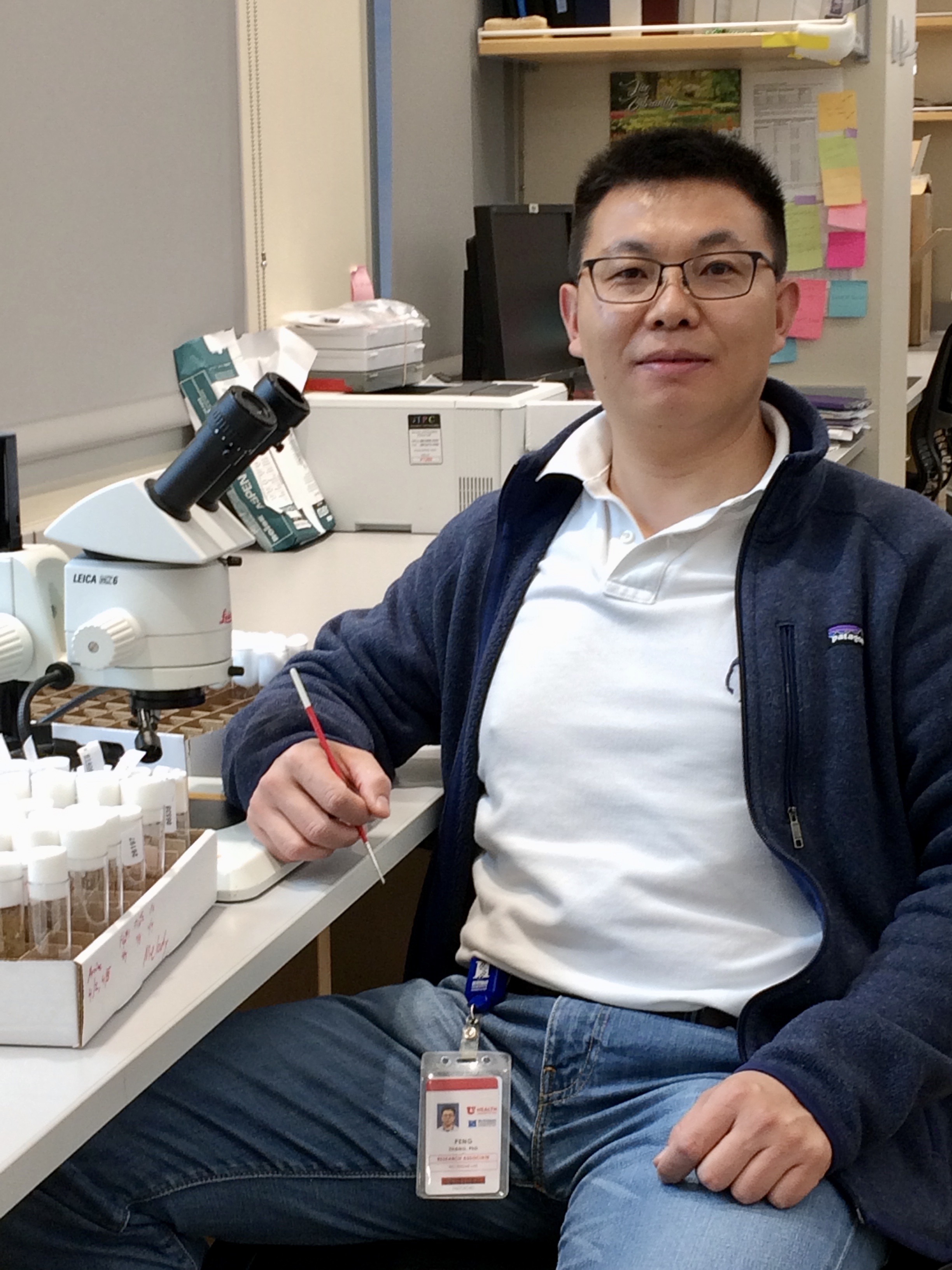Peng Zhang, Ph.D. – Biography
Peng Zhang received his B.S. from Shandong Normal University (China) in 2004. He received his Ph.D. in Biochemistry and Molecular Biology from China Agricultural University in 2009, where he studied with Weiquan Liu, Ph.D., focusing on anti-avian influenza virus research. Following this, Dr. Zhang obtained postdoctoral training in Xinhua Lin, Ph.D.’s Lab (2009-2011) at the Institute of Zoology of Chinese Academy of Sciences, where he began using Drosophila models to study Wnt signaling regulation and organ patterning. From 2011 to 2014, Dr. Zhang held the positions of Assistant & Associate Professor at the Institute of Biophysics of Chinese Academy of Sciences, where he ran an independent research program focusing on Hippo pathway regulation and organ size control.
To expand his expertise in the field of stem cell biology, Dr. Zhang joined Bruce Edgar, Ph.D.’s lab at the German Cancer Research Center (DKFZ)/Heidelberg University in 2014 as a senior postdoctoral researcher and relocated with the lab to the Huntsman Cancer Institute/University of Utah in 2016. In 2021, he was honored as a Susan Cooper Jones Endowed Fellow in Cancer Research.
Dr. Zhang is currently a Research Assistant Professor at the Huntsman Cancer Institute and the Department of Oncological Sciences of the University of Utah School of Medicine. His research focuses on utilizing Drosophila gut and mammalian intestinal organoid models to study the mechanisms that govern intestinal stem cell proliferation, gut regeneration, and tumorigenesis. Aside from conducting research projects, Dr. Zhang engages in training and mentoring new students (both graduate and undergraduate) and technicians in Drosophila genetics and molecular biology.
Research Interests
- Cancer Biology
- Stem Cell Biology
- Damage Sensing and Gut Regeneration
- Drosophila melanogaster
- Organoid
